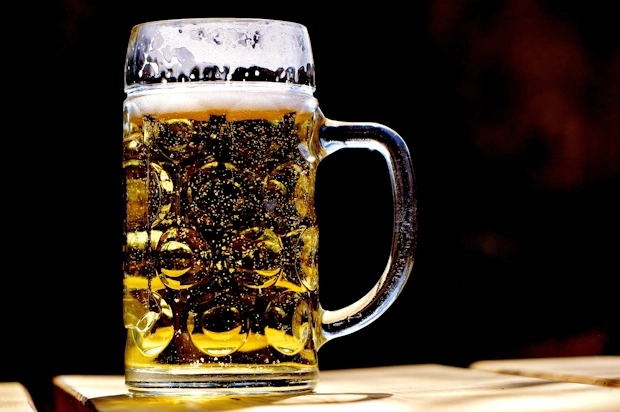
When it comes to weight loss, many factors come into play, including diet, exercise, and lifestyle choices. One often overlooked factor is alcohol consumption. Understanding how alcohol affects weight loss goals is essential for making informed choices during the weight loss journey.
Alcohol consumption can significantly impact weight loss efforts. It is important to recognize the potential effects of alcohol on our bodies and adjust our habits accordingly. By examining the relationship between alcohol and weight loss, we can make informed decisions about our health and well-being.
Alcohol and Weight Gain
Alcohol can contribute to weight gain due to its high calorie content and the poor food choices that are often made while drinking. For example, a night out with friends may involve indulging in high-calorie snacks or greasy fast food. These unhealthy choices, combined with the calories from alcoholic beverages, can quickly sabotage weight loss goals.
To combat weight gain from alcohol consumption, health experts recommend moderation.This means limiting intake to 1 drink per day for women and 2 drinks per day for men. It is crucial to be mindful of the type and quantity of alcoholic beverages consumed to support weight loss efforts.
Alcohol’s Effect on Metabolism
Alcohol consumption can have a significant impact on metabolism. When alcohol is present in the body, it becomes the primary fuel source, and the metabolism of carbohydrates and fats is temporarily halted.This prioritization of alcohol metabolism can lead to fat storage and hinder weight loss efforts.
Its excessive consumption can also damage the liver, leading to further metabolic disruptions. The liver plays a crucial role in metabolizing nutrients and maintaining overall metabolic health. When the liver is compromised, it becomes more challenging for the body to efficiently process and burn calories, which can hinder weight loss efforts.
To mitigate its impact on metabolism during weight loss, it is important to consume it in moderation and prioritize a balanced diet that focuses on nutrient-dense foods.
Empty Calories in Alcoholic Beverages

One of the key reasons why alcohol can impede weight loss is its calorie content. Alcoholic drinks provide calories but lack essential nutrients. These are often referred to as “empty calories” because they contribute to energy intake without providing any significant nutritional value.
To put this into perspective, let’s compare the calorie content of different alcoholic beverages. A standard serving of regular beer contains 153 calories, while gin, whiskey, vodka, tequila, and rum contain 97 calories per serving. Red wine contains 125 calories, white wine contains 121 calories, champagne contains 84 calories, margarita contains 168 calories, and whiskey sour contains 160 calories.
Being mindful of the calorie content of alcoholic beverages is crucial during weight loss. By factoring in the empty calories, individuals can make informed decisions about their overall calorie intake and adjust their diet accordingly.
Alcohol’s Impact on Nutrient Absorption
Alcohol can have a significant impact on nutrient absorption in the body. When it is present in the digestive system, it can impair the absorption of essential nutrients, leading to potential deficiencies.
To ensure optimal nutrient absorption during weight loss, it is essential to prioritize a balanced diet that includes a variety of nutrient-dense foods. By focusing on whole foods that provide essential vitamins and minerals, individuals can counteract any potential nutrient deficiencies caused by alcohol consumption.
Alcohol’s Effect on Appetite and Food Choices

Alcohol consumption can affect appetite and food choices, both of which can impact weight loss efforts. When under the influence of alcohol, individuals may experience lowered inhibitions and an increased desire for unhealthy foods.
It can also trigger hunger signals in the brain, leading to increased food intake. This combination of lowered inhibitions and increased hunger can make it difficult to resist indulging in high-calorie foods, ultimately hindering weight loss efforts.
To mitigate the impact of alcohol on appetite and food choices during weight loss, health experts recommend eating before drinking. Consuming a balanced meal or snack before drinking can help slow down its absorption and make healthier food choices. By fueling the body with nutritious foods before consuming alcohol, individuals can better manage their appetite and make more informed food choices.
Alcohol’s Impact on Sleep and Recovery
Sleep plays a crucial role in weight loss and overall well-being. However, alcohol consumption can disrupt sleep patterns, impacting both the quantity and quality of sleep.
Excessive alcohol consumption can interfere with the body’s natural sleep cycle, leading to difficulties falling asleep and disruptions throughout the night. This lack of quality sleep can have a negative impact on weight loss efforts, as it impairs the body’s ability to recover and burn excess calories.
To optimize weight loss efforts, it is important to prioritize restful sleep. This includes creating a sleep routine, avoiding alcohol close to bedtime, and practicing relaxation techniques to promote better sleep quality. By prioritizing sleep, individuals can support their weight loss goals and overall well-being.
Strategies for Incorporating Alcohol into a Weight Loss Plan

For those who choose to include alcohol in their weight loss plan, there are strategies that can help minimize its impact. By adopting these strategies, individuals can enjoy it in moderation while still working towards their weight loss goals.
- Setting a limit for alcohol consumption and sticking to it is crucial. This involves determining the number of drinks per day or week that aligns with weight loss goals and personal preferences. Having alcohol-free days can also reduce its overall intake and provide an opportunity for the body to rest and recover.
- Opting for lower calorie options, such as wine or low alcohol beers, can help manage calorie intake. These alternatives contain fewer calories compared to other alcoholic beverages, making them more suitable choices for those who are conscious of their energy intake.
- Drinking slowly and having non-alcoholic drinks in between alcoholic beverages can also help control overall alcohol intake. By pacing oneself and alternating between alcoholic and non-alcoholic drinks, individuals can reduce the total amount of alcohol consumed while still participating in social activities.
Alcohol use disorder (AUD) can interfere with weight loss efforts and lead to cravings for fat and sugar.
It may also impair the body’s ability to recover after exercise and burn excess calories.
Seeking professional help is crucial for addressing any concerns related to alcohol consumption and weight loss.
Recommended Guidelines for Alcohol Consumption
Health experts recommend moderation in alcohol consumption, with 1 drink per day for women and 2 drinks per day for men. However, it is important to plan for the empty calories in alcoholic beverages and include them in the daily calorie count.
By being mindful of portion sizes and sticking to standard drink sizes, individuals can better manage their overall calorie intake and align it with their weight loss goals.
Seeking Medical Help
If someone has concerns about alcohol consumption or if it is causing problems in various areas of life, seeking medical help is necessary. Alcohol use disorder (AUD) can interfere with weight loss efforts and lead to cravings for fat and sugar.
It may impair the body’s ability to recover after exercise and burn excess calories. Additionally, AUD can cause feelings of anxiety and depression, affecting motivation and body image.
It is important to have open and honest conversations with healthcare professionals to address any concerns related to alcohol consumption and weight loss. They can provide guidance, support, and appropriate resources to help individuals overcome any challenges they may face.
Conclusion

Alcohol consumption can significantly impact weight loss efforts. It is crucial to consider the potential effects of alcohol on our bodies and adjust our habits accordingly. By understanding its relationship with weight loss, individuals can make informed decisions about their health and well-being.
Alcohol can contribute to weight gain due to its high calorie content and the poor food choices made while drinking. It can also affect metabolism, nutrient absorption, appetite, food choices, sleep, and recovery.
However, by practicing moderation, being mindful of calorie intake, and making informed choices about alcohol consumption, individuals can align their weight loss goals with their overall health and well-being.
It is important to remember that everyone’s journey is unique, and what works for one person may not work for another. By staying informed and seeking professional guidance when needed, individuals can navigate the complexities of weight loss and alcohol consumption to achieve their desired outcomes.